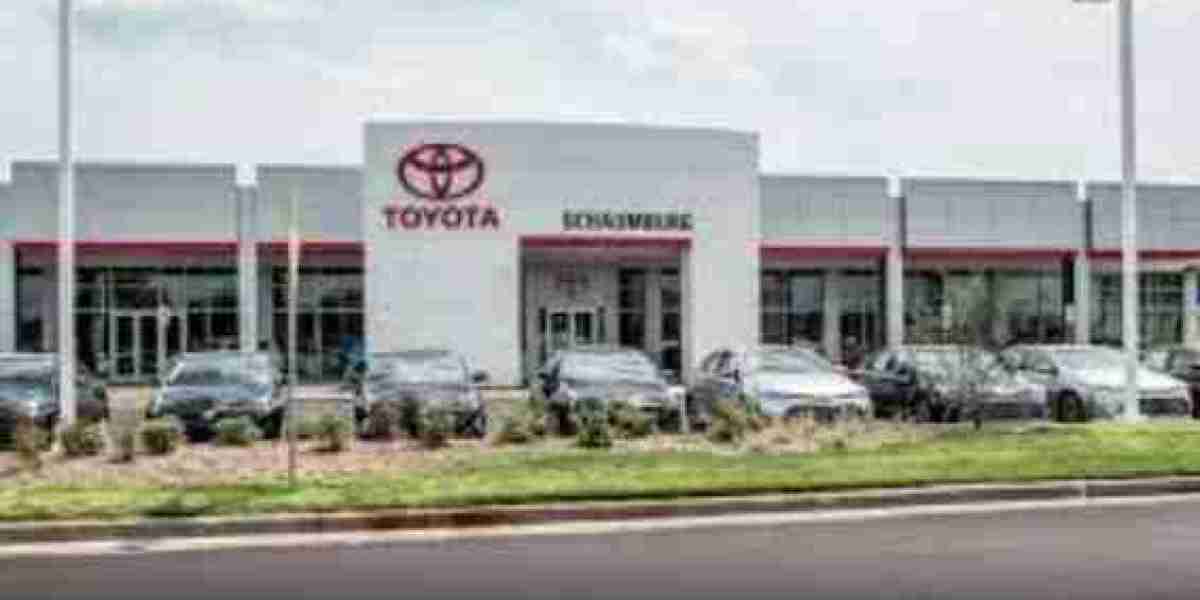When it's time to buy a car—whether new or used—the first place most people think of is a dealership. But what exactly is a dealership, and why is it such an essential part of the automotive world? For many car buyers, especially first-timers, the dealership can seem intimidating or confusing. Understanding how dealerships work can make your next car-buying experience smoother, smarter, and even more enjoyable.
In this guide, we’ll explore what a dealership is, the different types of dealerships, how the buying process works, and tips on how to get the best deal when you walk onto the lot.
What is a Dealership?
A dealership is a business that sells new and/or used vehicles to customers. Dealerships typically operate under agreements with car manufacturers (OEMs), allowing them to sell vehicles from specific brands. They also provide services like financing, maintenance, repairs, and trade-ins.
In short, dealerships are the go-to hub for buying, selling, or servicing vehicles. They act as the middleman between manufacturers and buyers, helping you find the right car while also offering support before, during, and after the sale.
Types of Dealerships
Not all dealerships are the same. Here’s a breakdown of the common types you’ll encounter:
Franchise Dealership
Affiliated with specific automakers (e.g., Toyota, Ford, BMW).
Sell brand-new vehicles from that manufacturer.
Often carry certified pre-owned (CPO) vehicles backed by the manufacturer.
Offer full service and repair centers using OEM parts.
Independent Dealership
Not tied to a specific automaker.
Specialize in used vehicles from various brands.
May offer more flexible pricing but fewer services.
Warranty and service support vary depending on the dealer.
Buy Here, Pay Here Dealership
Target buyers with low or no credit history.
Offer in-house financing, meaning you make payments directly to the dealership.
Often higher interest rates and older vehicles.
Good for buyers who can’t get traditional financing, but you need to be cautious.
Online Dealerships
Entirely digital car buying process.
Examples include Carvana, Vroom, and some manufacturer-backed online platforms.
Home delivery, online financing, and remote trade-ins.
Great convenience, but limited ability to test drive before buying.
What to Expect at a Car Dealership
If you've never been to a dealership before, here’s what you can typically expect:
A Wide Selection of Vehicles
Dealerships display their inventory on the lot and inside the showroom. You can browse, test drive, and compare vehicles in person.
Sales Professionals
Sales representatives are there to guide you, answer questions, and—of course—close the deal. Some are very helpful, while others may be pushy, so it's okay to take your time and ask questions.
Financing Options
Most dealerships have finance departments that help you secure a loan or lease. They work with multiple lenders to find terms based on your credit history and budget.
Trade-In Offers
You can bring in your current vehicle and have it appraised as part of your down payment. Make sure to research your car’s trade-in value beforehand.
Service and Parts Department
Franchise dealerships usually offer certified service, maintenance, and parts. This makes them a convenient one-stop-shop even after your purchase.
Pros and Cons of Buying from a Dealership
Like any purchasing option, dealerships come with their own advantages and drawbacks.
Pros:
Access to New and Certified Used Cars: Franchise dealers provide the latest models and certified pre-owned vehicles with warranties.
Financing Support: They help arrange auto loans, often with manufacturer incentives or promotions.
Trade-Ins Made Easy: You can apply your trade-in value directly toward your new purchase.
Post-Sale Service: Many dealerships offer service plans, free maintenance periods, and repair facilities.
Cons:
Higher Prices: Dealerships often charge more than private sellers.
Upselling Tactics: Extended warranties, insurance, accessories—expect to be offered a lot of extras.
Pressure Sales Environment: Not all salespeople are high-pressure, but it can happen.
Tips for Getting the Best Deal at a Dealership
To make your dealership experience smoother and more cost-effective, follow these smart car-buying tips:
Do Your Homework
Research the car model, market prices, financing rates, and incentives before stepping into the dealership. Knowledge is power.
Secure Pre-Approval
Get pre-approved for an auto loan through your bank or credit union. This gives you negotiating power and helps you compare dealership offers.
Negotiate the Out-the-Door Price
Don’t just look at the monthly payment. Always negotiate based on the total out-the-door price, which includes taxes, fees, and extras.
Test Drive Thoroughly
Check the car’s ride quality, visibility, tech features, comfort, and performance during a test drive. Don’t rush this step.
Evaluate the Trade-In Separately
Negotiate your new car’s price and your trade-in’s value as separate transactions. This ensures transparency.
Avoid Unnecessary Add-Ons
Be cautious about buying extras like paint protection, fabric guard, or extended warranties unless you’ve researched their value.
Dealerships in the Digital Age
The dealership model is evolving fast thanks to digital tools and changing consumer expectations. Many traditional dealerships now offer:
Online inventory browsing
Virtual trade-in quotes
Digital financing applications
At-home test drives and delivery options
This hybrid model offers the best of both worlds—personal interaction at the dealership with the convenience of online shopping.
Final Thoughts
A dealership is more than just a place to buy a car—it's a full-service hub where the buying journey, financing, trade-ins, and vehicle servicing all come together. While buying from a dealership might not always be the cheapest route, the security, service, and financing options it provides make it a preferred choice for millions of buyers every year.
By understanding how dealerships work and preparing in advance, you can walk onto any lot with confidence. Whether you’re buying your first car or your tenth, the dealership experience can be a smooth and successful part of your car ownership journey. Click Here








